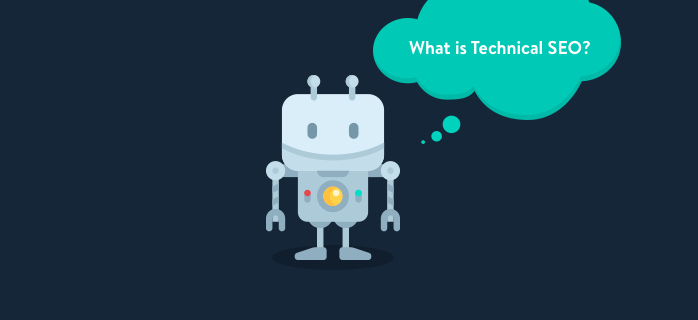SEO
SEO in 2019 [Tactics That Work] & How To Learn SEO in 2019 Hustle-Free
Here are 12 most important tactics you need to know in 2019, that tactics will work and help for your SEO in 2019 and learn how to SEO in 2019 hustle-free.
![SEO In 2019 [Tactics That Work]](https://www.twinztech.com/wp-content/uploads/2018/12/seo-in-2019-tactics-that-work.png)
No doubts that the Internet is full of information related to SEO. There are dozens of different guides, courses, and lessons on the web. Sometimes it makes you dizzy. It is especially hard for newbies to find the right angle to approach SEO.
Since most of us continuously lack time, we simply can’t afford to spend days absorbing content that does not entirely cover our needs.
Thus, the only question that comes to my mind is – Where to start an SEO journey?
I am going to tell you how to learn SEO in 2019 hustle-free.
Let’s get into it!
SIDENOTE: If you are curious about how to promote your website on a shoestring budget, you definitely should watch this video:
Table of Contents
1. Free or Paid SEO Courses
When it comes to SEO educational evolution, the first thing I think about is “practice”. If you review the SEO chronology, you will see that there were no institutions specialized in SEO. All the aspects of search engine optimization were examined systematically. Piece by piece.
Thanks to these observations, we can find complete courses and lessons that cover various SEO aspects.
However, lots of SEO gurus offer paid SEO courses. And the price can reach thousands of dollars. It is costly, isn’t it?
You might think: “if a course costs lots of money, it can give me some sacred knowledge of SEO.” Moreover, you won’t find any better information at all.

Well, this is not true.
The main difference between free and paid courses is that paid courses can save you time. In other words, you will get all the necessary information regarding SEO in a single course. And if you have a budget to buy an SEO course, you should choose the courses created by real SEO practitioners. It is important to absorb the information from the professionals who do SEO and not just know the theory.
Even though paid courses are beneficial, I want to show you how to learn SEO free of charge and get a result.
2. A Couple of Contradictions for the Start
It should be stated that search engine optimization is an unstable industry. It is too dynamic and full of contradictions regarding the strategies that appear one by one.
Why does it happen?
First of all, it is completely impossible to predict new updates that Google might take for its algorithms. Due to this reason, SEO professionals have to implement new strategies that would go in line with the rules of algorithms. It means that the appropriate strategies “yesterday” won’t work “tomorrow.”
Thus, the question is “how to stay tuned in learning SEO?”
You must explore different SEO communities and forums, pay attention to what SEO gurus say, and test various strategies in practice.
3. What Hat Should You “Wear”?
Newbies might not know that SEO can be divided into a few types that are different from “hat colors.” There are three of them:
“White hat SEO” adheres to all the rules created by Google.
“Black hat SEO” aims to deceive and fudge the rules of Google.
“Grey hat SEO” walks the line.

You can follow any of these SEO ways, but I encourage you to choose a “white” hat one. Wearing a “white” hat, you will be protected from Google’s penalties and keep your website safe. Other than that, you must realize that your competitors might be avid admirers of “black” hat SEO strategies. These shady tactics aim to outrank your website to dominate your niche.
4. Start with the Basics
I would recommend you start your educational process by reading these guides:
- A must-view video from Matt Cutts where he explains how search works
- A starter guide on SEO by Google that is a must-read for sure
- And the beginner’s guide to SEO from Moz
5. Competitor Research
If you want to dominate your niche you must know everything about your main competitors. The truth is that you can discover what strategies your competitors use and use this knowledge to your advantage. Furthermore, you can see what mistakes your competitors make and avoid them eventually.
I would recommend you get familiar with these two guides on Competitor research:
- 1. You must know the key factors you should pay attention to during Competitor research and the guide from Nathan Gotch will help you with this (SEO Competitor Analysis).
- 2. If you are curious about running competitor analysis using only two tools, read this guide
Also Read: What is Canonicalization? and Cross-Domain Content Duplication.
6. Keyword Research
Any SEO strategy involves keyword research. Sometimes newbies think that keyword research is all about finding the juiciest keywords for optimizing their content. However, if you don’t take into account a search query intent, you won’t succeed in your keyword research.

Just to remind you – there are three main types of search query intent: informational, navigational, and transactional. If you understand your target audience’s query intent, you will choose the right keywords.
And a few guides that you can’t pass by:
- The definite guide on keyword research from Brian Dean
- How to do keyword research for SEO from Ahrefs
7. Content Audit
Every website contains some sort of content on it. The primary goal of any content is to be useful for users and to represent some specific information. However, if your website doesn’t have indexable content, the crawlers won’t have a chance to read it. As the result, the pages on your website won’t be shown up in searches.
That’s why it is important to run a content audit properly, and the following guides will help you with this:
- 1. Everett Sizemore updated his guide on content audit in 2017 but it still rings the bell
- 2. A step-by-step guide from Eric Siu is a must-read for sure
8. On-Page and Off-Page SEO
Search engine optimization of the website can be divided into two parts – On-page and Off-page optimization. The importance of these types of SEO is difficult to overestimate. However, each of the types includes some specific elements that you must know.
To put it simply, on-page SEO is responsible for what your site (and all the pages on it) is about, while off-page SEO works on your website’s authority and popularity.
These guides will help you understand both on and off-page SEO:
- On-Page SEO: Anatomy of a Perfectly Optimized Page (2018 Update)
- On-Page Ranking Factors
- On-Page SEO: An Actionable Guide For 2018
- The Only Off-Page SEO Walkthrough You’ll Ever Need
Also Read: 16 Most Important On-Page SEO Factors To Boost Your Ranking Faster in Google
9. Technical SEO and Website Audit
The phrase “Technical SEO” sounds a bit scary for newbies most of the time. Yes, it seems hard to delve into technical things like the indexability of the website, site speed, mobile optimization, etc. Here are a couple of hints for you:
- 1. Go to Google and ask for it
- 2. Search for the information across SEO communities, forums
- 3. Hire an SEO professional who would help you out

I advise you to review these three guides:
- Ultimate Guide: How to Make a Website in 2018
- Technical SEO Audit Checklist for Human Beings (2018 Update)
- Step-by-Step Guide to a Technical SEO Audit
10. Conversion Rate Optimization (CRO)
If traffic can’t be converted into sales, it makes no sense. All the efforts that you put into your SEO might be in vain if traffic doesn’t work for you as it should. That’s why conversion rate optimization matters.
To give you a clear idea of what CRO is, I would like to provide you with a definition from Omniconvert:
“CRO is a crucial online marketing activity for all search marketers who want to maximize revenue from SEO, PPC, & other forms of online promotion that attract traffic on-site. It can also highlight missed opportunities. It allows search marketers to track and keep up with ever-changing customer preferences and motivations.”
The guide on CRO I would recommend you is:
11. SEO Tools You Can’t-Miss
I believe that it would be super difficult to optimize a website without specific tools. Thus, here is the list of the tools that will be useful for you:
- Google Analytics (track and report data collected from the website)
- Screaming Frog (analyze key onsite elements)
- Pingdom Site Speed tool (increase your site speed)
- Ahrefs Tool Suite (use a wide spectrum of SEO tools in one place)
12. Keep an Eye on Your SEO Progress
Tracking the progress of anything you do is essential. This rule applies to SEO as well. Google Analytics and Google Search Console are the tools that will help you.
A few guides that you should review:
- The Absolute Beginner’s Guide to Google Analytics
- Google Webmaster Tools Guide
13. To Conclude
As you already noticed SEO is a complicated craft. It consists of different components that aim to improve your website’s ranking positions. Without using SEO strategies your online business won’t gain traction.
I have just listed the articles and the tools that every newbie must be familiar with. If you start to learn SEO, you will have to be patient. Both the process of studying search engine optimization and the results you’ll get from it take your time.
The main principle in SEO science is your insistence!
If you found this post useful, feel free to share it on social media channels. And don’t forget to leave your comments 🙂
Helpful Resources:
1. Essential Things to Know about Bing SEO
2. Top 5 SEO Trends For 2020 You Need To Know
3. The 4 Types of SEO That You Should Know
4. Small Business SEO: 5 Steps You Need to Enhance Your Business
5. The New SEO Game Changer – Google Voice Search
6. Top 5 SEO Audit Tools You Should Use For Technical Analysis
-

 Instagram4 years ago
Instagram4 years agoBuy IG likes and buy organic Instagram followers: where to buy them and how?
-

 Instagram4 years ago
Instagram4 years ago100% Genuine Instagram Followers & Likes with Guaranteed Tool
-

 Business5 years ago
Business5 years ago7 Must Have Digital Marketing Tools For Your Small Businesses
-

 Instagram4 years ago
Instagram4 years agoInstagram Followers And Likes – Online Social Media Platform















